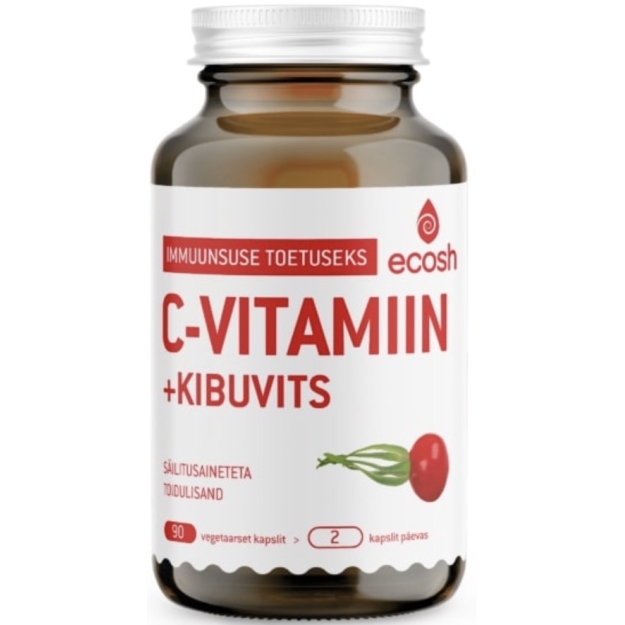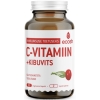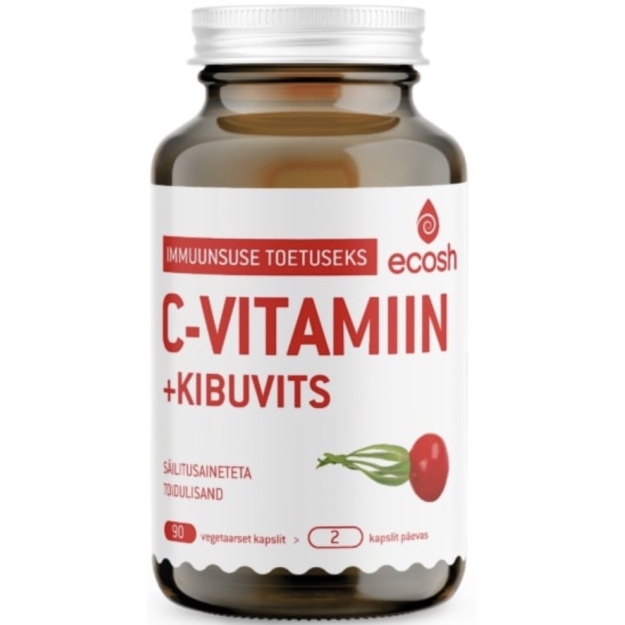Vitamin C – L-ascorbic acid is a water-soluble vitamin that inhibits oxidation processes. Vitamin C is a powerful preservative e. an antioxidant that fights free radicals by protecting cells and tissues. Living in these stressful times, we should find a way to take vitamin C.
Vitamin C contributes to the normal functioning of the immune and nervous systems, protects cells from oxidative stress and reduces fatigue and exhaustion. In addition, vitamin C increases the absorption of iron and contributes to the normal formation of collagen for normal vascular function.
Vitamin C is very important for the formation of connective tissue, skin, tendons and cartilage and is especially important for the synthesis of collagen. Collagen is an important protein ingredient in our skin and connective tissues that helps maintain the elasticity and durability of the skin and blood vessels. Collagen keeps the body together as an adhesive and lines the walls of internal organs, skin and blood vessels. Collagen contains smooth muscle tissue, blood vessels, the gastrointestinal tract, heart, gallbladder, bladder, kidneys and ending with hair and nails. Adequate amounts of vitamin C are one of the key factors in the synthesis of high quality collagen.
Vitamin C:
- contributes to the normal formation of collagen
- is necessary for the normal functioning of cartilage, skin, bones, blood vessels and gums
- contributes to the normal functioning of the immune system
- helps protect cells from oxidative stress
- helps reduce fatigue and exhaustion
- increases the absorption of iron
- contributes to the regeneration of the original form of vitamin E.
There is an opinion that vitamin C provides energy, it is not quite right. Namely, vitamin C transports fatty acids to the mitochondria, or cellular energy stations, which have a fatigue-repellent effect. However, energy is produced in the body from carbohydrates and fats.
NB ! Dietary intake of vitamin C is impaired by smoking, alcohol, sugar, antibiotics, aspirin, cortisone, birth control pills, dysbacteriosis, rheumatism and other chronic diseases, stress and prolonged cold exposure.
Rosehip gives the product its own power, being one of the most vitamin-rich berries. In addition, rosehip contains vitamins B1, B2, B6, E and A and the minerals potassium, calcium, iron, magnesium and zinc. Rosehip fruits are rich in antioxidants and fiber, which provides a general tonic effect on health and is beneficial for digestion.


























